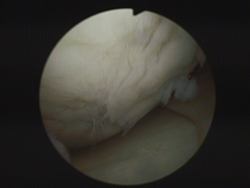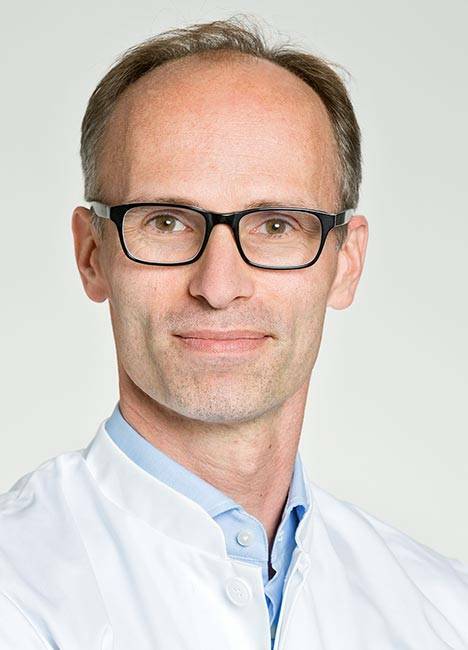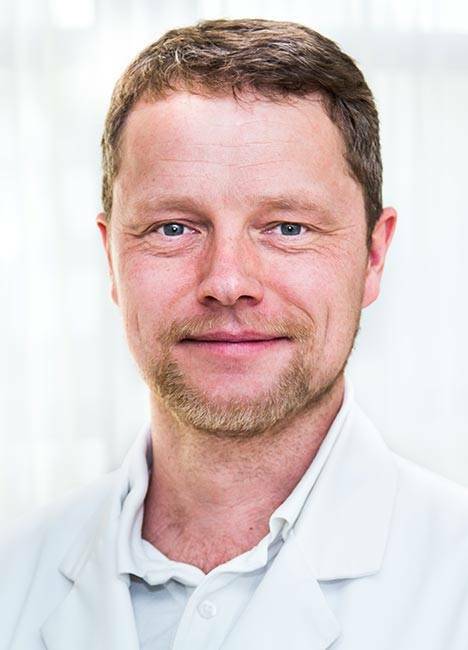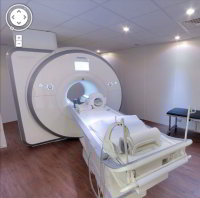Autologous Cartilage Transplantation (ACT) -stopping osteoarthritis of the knee
Is irreversible cartilage damage still a fact of life?
 Arthroscopic image of a 45 year old patient, with clearly visible damage to the cartilage surface of a knee-joint. The surface is no longer smooth and strong, but rough and vulnerable as a result of damage. © joint-surgeon.com
Arthroscopic image of a 45 year old patient, with clearly visible damage to the cartilage surface of a knee-joint. The surface is no longer smooth and strong, but rough and vulnerable as a result of damage. © joint-surgeon.com
Cartilage cells are vital as cushions inside the joints of the body. Healthy cartilage tissue keeps joints smooth, flexible and pain free. If the cartilage tissue becomes damaged, this damage tends to be permanent. Joints become painful and lose their flexibility. Cartilage cannot regenerate naturally inside the body.
After some time the bones start to collide. The joints start to become inflamed and permanently stiff, unless a prosthetic joint is implanted. This painful process represents the irreversible development of osteoarthritis.
Patients and doctors around the world accepted the irreversibility of cartilage damage as a fact of life - until now.
The secret of regeneration: Growth of cartilage outside the body
 Same patient. Before applying new cartilage to the injured area of the joint the damaged cartilage is cleaned out via an arthroscopic procedure. © joint-surgeon.com
Same patient. Before applying new cartilage to the injured area of the joint the damaged cartilage is cleaned out via an arthroscopic procedure. © joint-surgeon.com
Modern medicine has now come up with an ingenious solution to this problem: from a small amount of cartilage cells taken from a patient, a huge quantity of new cartilage can be grown outside the body.
How does this biological cartilage regeneration take place?
At the German Gelenk Klinik in the city of Freiburg (home to one of the oldest Universities in Germany (since 1457) and a leading centre for medical science in Germany), this procedure of cartilage transplantation is performed daily. The founder and chief physician of the Gelenk Klinik was a pioneer, being the first surgeon in the world to master cartilage transplantation as a minimally invasive procedure.



 Prof. Dr. med. Sven Ostermeier, Consultant for Orthopaedic Knee Surgery
Prof. Dr. med. Sven Ostermeier, Consultant for Orthopaedic Knee Surgery

